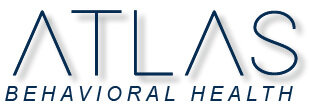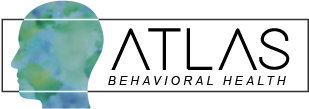
Postdoctoral Fellowship
Training Program
We are no longer accepting applications for the 2026-2027 training year.
We will update the information below in Fall 2026 when applications reopen for 2027-2028.
About Us
Atlas Behavioral Health is a small, private group practice in Chicago that provides outpatient therapy to adults, children/adolescents, couples, families, and groups. At Atlas, we value creating an inclusive and diverse space, promoting a collaborative and supportive work environment, committing to social justice efforts, and engaging in ongoing self-reflection and continuous growth. Our practice strives to be anti-racist, consciously building a team that encompasses a diverse range of perspectives and positionalities, and supporting more marginalized clinicians in concerted ways. We have built into our financial model the ability for each full-time clinician (including fellows) to have two pro bono slots, allowing them to reach more people in need of services.
Work Culture
At Atlas, we work to foster a collaborative environment where clinicians feel fairly compensated for their work and can establish strong relationships with their colleagues. We aim to create a protective environment that prevents burnout, while acknowledging the taxing nature of our work and the importance of time outside of work. We work to accomplish this through cultivating warm and supportive spaces (in individual and group supervision) and building strong relationships among staff that allow for and encourage vulnerability, openness, humor, creativity, and fun. At Atlas, we value firm work-life boundaries, work to hold each other accountable to these boundaries, and create systems that support this.
The Position
For the 2026-2027 academic year, we are looking to hire two full-time postdoctoral fellows. We hope to find clinicians who are diverse in their background, identity, training, and clinical expertise. Clinicians of color, LGBTQ+ clinicians, and clinicians who speak Spanish are highly encouraged to apply.
Schedule
This is a full-time role with a 40-hour workweek spread over five days. We follow a hybrid work model: fellows must be in the office three days a week, while the remaining two days can be spent working remotely or in the office as preferred. The hybrid model was crafted to create a sense of connectedness through being in the office together, facilitating case consultations, while also offering the flexibility of working from home.
Time is distributed as follows: 30 slots open for clients (25 completed client hours per week), four hours of supervision & training, and the remainder for administrative time/case management and professional development. At the successful completion of their fellowship year, clinicians will have completed approximately 1,100 direct service hours. This amount exceeds the minimum required for licensure in Illinois.
We ask fellows to identify 30 available slots for client appointments. At least 7 of these slots must be during "primetime" hours, defined as high-demand times starting at or after 5 PM on weekdays and any time on weekends. The distribution of these slots is flexible and can be arranged as the fellows see fit. We understand the importance of personal time and strive to balance caseload and hours while also accommodating clients who cannot attend daytime appointments due to school or full-time work commitments. As the year progresses, we are open to discussing schedule adjustments with the fellows.
Typical Day
Fellows are typically scheduled for 8-hour workdays, Monday through Friday, with at least three days required to be in-person at our West Town office in Chicago. While schedules are tailored to individual needs and preferences, most fellows schedule 5–6 clients per day. We recommend starting the training year with a built-in one-hour break at midday, dividing client sessions between morning/early afternoon and late afternoon/evening sessions.
The remaining 2–3 hours each day are dedicated to scheduled training activities, including individual supervision (twice a week), group supervision (once a week), and didactics (once a week). This time is also used for documentation, case management, client preparation, informal case consultations, connecting with colleagues, and self-care. Toward the end of the training year, many fellows use this time to study for the EPPP.
Methods of Fellow Evaluation
Fellows are evaluated at the 60-day and 120-day intervals, again at the 6-month (halfway point), and finally at the 1-year mark (completion of the fellowship). Evaluations include a synchronous conversation between fellows and supervisors (fellow’s strengths, fellow’s areas of growth, and any other notable feedback) and a review of the Fellow evaluation form (core competencies of the fellowship) completed by supervisors.
Due Process Procedures
Due Process procedures are implemented in response to concerns raised by a supervisor or other staff member regarding a Fellow. Atlas has created a Postdoctoral handbook that includes definitions and detailed step-by-step due process and grievance procedures.
Compensation
Fellows are paid an annual stipend, divided into 24 pay periods (paychecks distributed twice each month). Please note that the stipend amount is before taxes and any other deductions (e.g., health insurance premiums).
Personal Insurance Benefits
Fellows are given the option to enroll in medical (BCBSIL), dental (Delta), and vision (Delta) insurance. Atlas will pay up to $250 a month towards a Fellow’s individual monthly premiums for any/all of the three options above. Fellows may also enroll partners and dependents; however, Atlas does not contribute to their monthly premiums.
Time Off
Given the schedule structure, fellows have the flexibility to take days off throughout the year and still meet the hour requirements. Specifically, fellows are granted 40 hours of paid sick leave and 40 hours of paid leave. Fellows are also encouraged to regularly discuss their work schedules with supervisors to find a balance between their professional and personal lives.
Licensure at Completion
Successful completion of the post-doctoral fellowship program will fulfill (and surpass) the minimum supervised practice requirements for licensure as a clinical psychologist in the state of Illinois. For information on licensure in Illinois, please visit https://idfpr.illinois.gov/profs/psych.asp.
If a fellow intends to be primarily licensed in another state after fellowship, they must verify that state’s hour requirements and notify Atlas’s training director so Atlas can ensure they meet those requirements.
Professional Development
Atlas reimburses up to $250 per year for professional development costs in order to promote and support clinicians' ongoing learning.
Amenities Provided by Atlas
paid leave (paid time off) and paid sick leave (paid sick time off)
option to enroll in medical (BCBS), dental (Delta), and vision (Delta) insurance; Atas contributes to fellows’ insurance premiums if they enroll
disability insurance (short-term and long-term); Atlas pays the full monthly premium
liability/malpractice insurance; Atlas pays the full monthly premium
weekly in-house didactic/training
fully furnished office space (waiting area, secured offices, kitchen, and conference room)
office supplies
clinician refreshments (coffee, tea, and snacks)
Who Would Be a Good Fit
Those who are relational, open, curious, self-aware, fun, and social justice-minded. We are seeking fellows who are organized, value ongoing learning, and are committed to continuous personal and professional growth. At Atlas, we believe that valuing learning and growth involves providing frequent, reciprocal feedback that is rooted in honesty and mutual respect. Fellows likely to excel at Atlas are those who intentionally utilize the therapeutic relationship in their work and who value having space to explore and continue growing in this aspect of their clinical practice. Additionally, fellows who recognize the importance of developing a conscious self-awareness of their positionality and consistently interrogating how it may impact and/or inform clinical practice would be a good fit at Atlas.
Clinicians who hold notable privilege are especially expected to be actively engaged in anti-racist, LGBTQ-affirming, and generally anti-oppressive practice, with the recognition that this is a lifelong and action-oriented process.
Application Process
We conduct rolling interviews and schedule them as applications are received. After we receive and review your materials, if we believe there may be a mutual fit, we will reach out via email to schedule a first-round interview. This is an individual virtual meeting with one of our supervisors (either Dr. Lindsey Hovan or Dr. Sheila Collins) that is designed for us to get to know you and to answer any questions you may still have after reviewing our materials. From here, we will talk you through the next steps of the interview process.
We view this as a mutual process and want you to get a strong sense of who we are, as we believe finding the right fit is essential for both sides.

